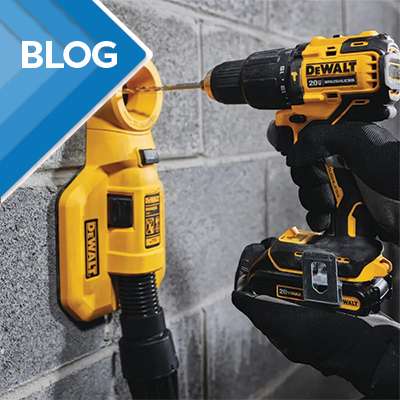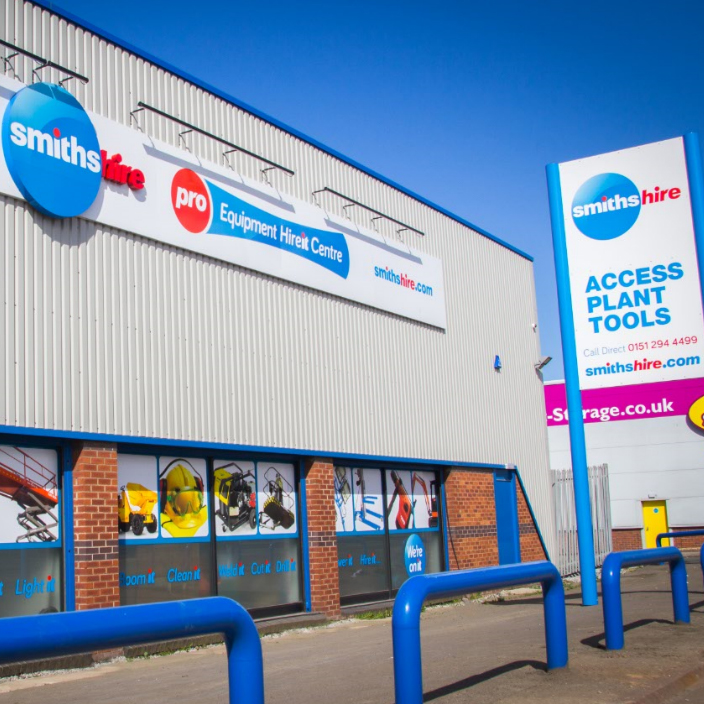Now, ideally whenever possible, it’s always best to use tools that are specifically tailored to the job at hand. But if you want to be prepared for anything, you can never go wrong with these…
Tool #1 – Cordless Drill
Rugged, portable and highly versatile, the battery powered cordless drill is a DIY staple for a good number of reasons. It’s easily capable of tackling a wide variety of materials, including wood, concrete, metal, brick and plastic. That means you can rely on it to be a steadfast companion in a range of jobs, whether you’re putting up shelves, assembling decking, or securing curtain rails. Plus, cordless drills generally come with an adjustable clutch, providing greater torque control. Its already-impressive versatility is enhanced further by the choice of a keyed or keyless chuck, which can hold both hex and standard drill bits.
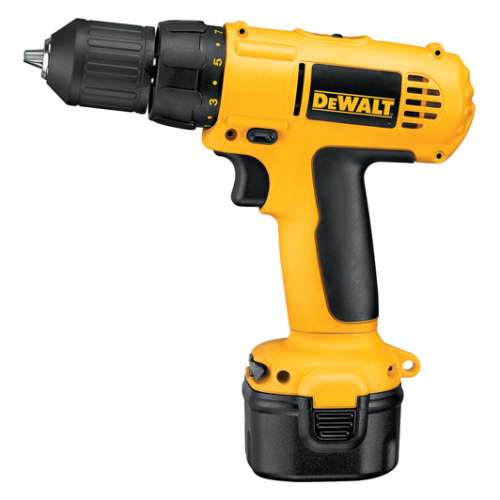
Tool #2 – Impact Driver
The impact driver is a common companion to a standard cordless drill. Essentially, it’s a specialised tool that’s used for driving screws and tightening nuts. As the name suggests, its mechanism uses repetitive hard impacts in its application, rather than the rotary motion of a drill. (In this way, they’re not that dissimilar to impact drills, which we discussed in a recent post.) This mechanism allows impact drivers to provide greater torque than their standard drill counterparts, and they have a fastening mechanism that reduces the chance of stripping screws – always annoying when that happens!
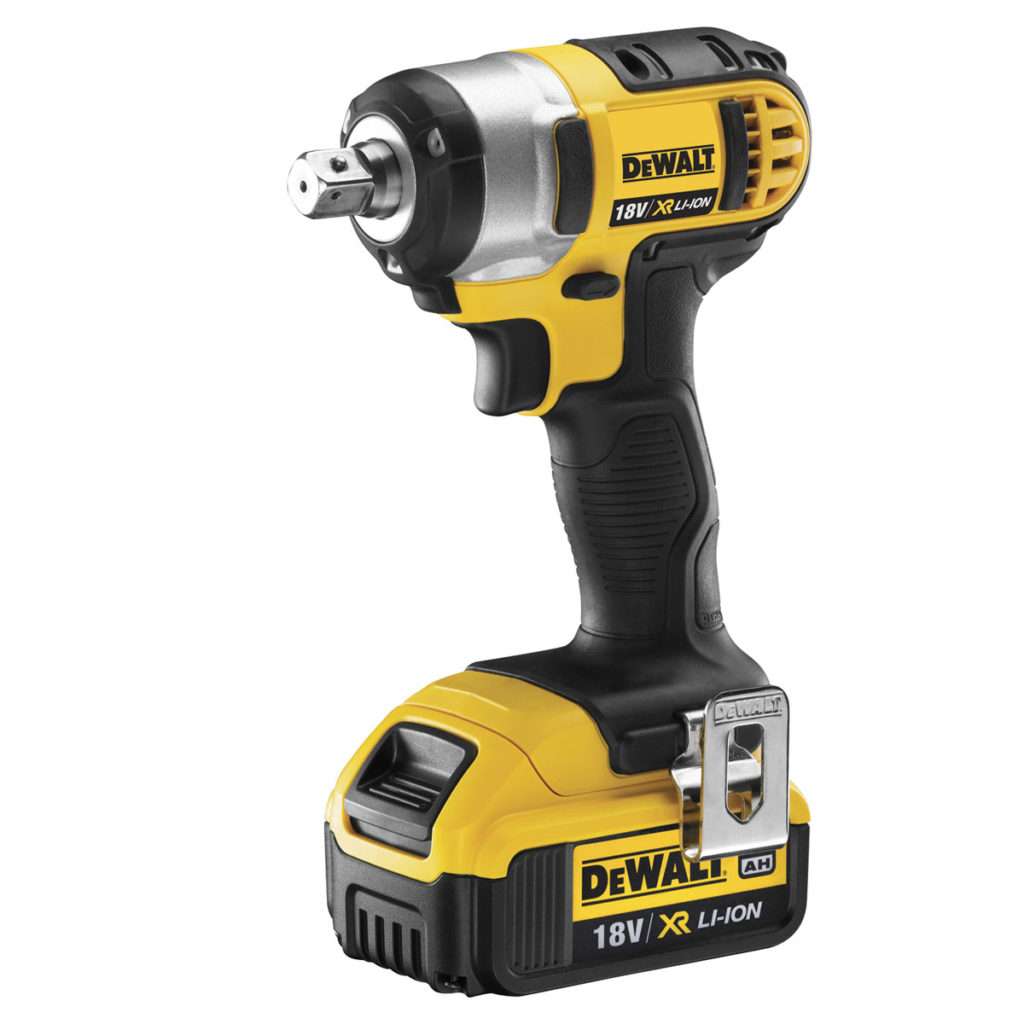
Tool #3 – Jigsaw
A jigsaw is another extremely versatile tool. It’s basically a saw with a thin but sturdy reciprocating blade. The tool’s design allows it to be used to cut a wide variety of irregular curves, which means you can use it to cut intricate angled shapes, circles, curved profiles and patterns. What’s more, it’s sturdy and reliable enough to be used for a range of materials, including wood, laminate, plastic, ceramic tile, and even thin metals. For example, you can use it to create decorative patterns in a piece of timber, or neatly create a hole for a kitchen sink.
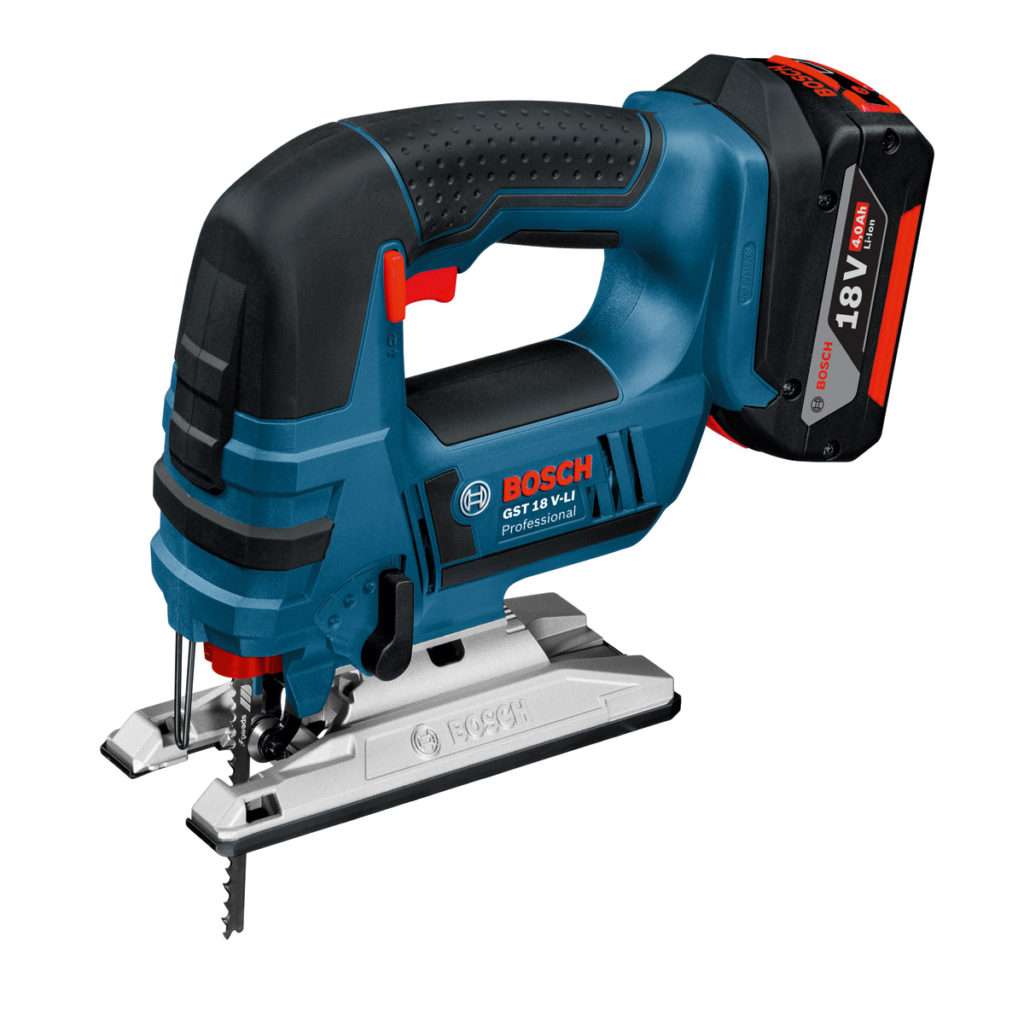 Tool #4 – Electric Planer
Tool #4 – Electric Planer
An electric planer provides a perfect way to put the finishing touches on your projects. It’s effectively used for shaping and contouring wood in much the same way as a hand plane, although obviously a lot more easily and efficiently. Intuitive and relatively easy to use, an electric planer is immensely useful for helping you to shave, smooth and remove thin layers of wood from a project – which you can use to chamfer grooves, add decorative bezels, or level uneven joists. One particularly common usage is to plane a door down to size, preventing it from getting stuck in its frame, or not closing properly.
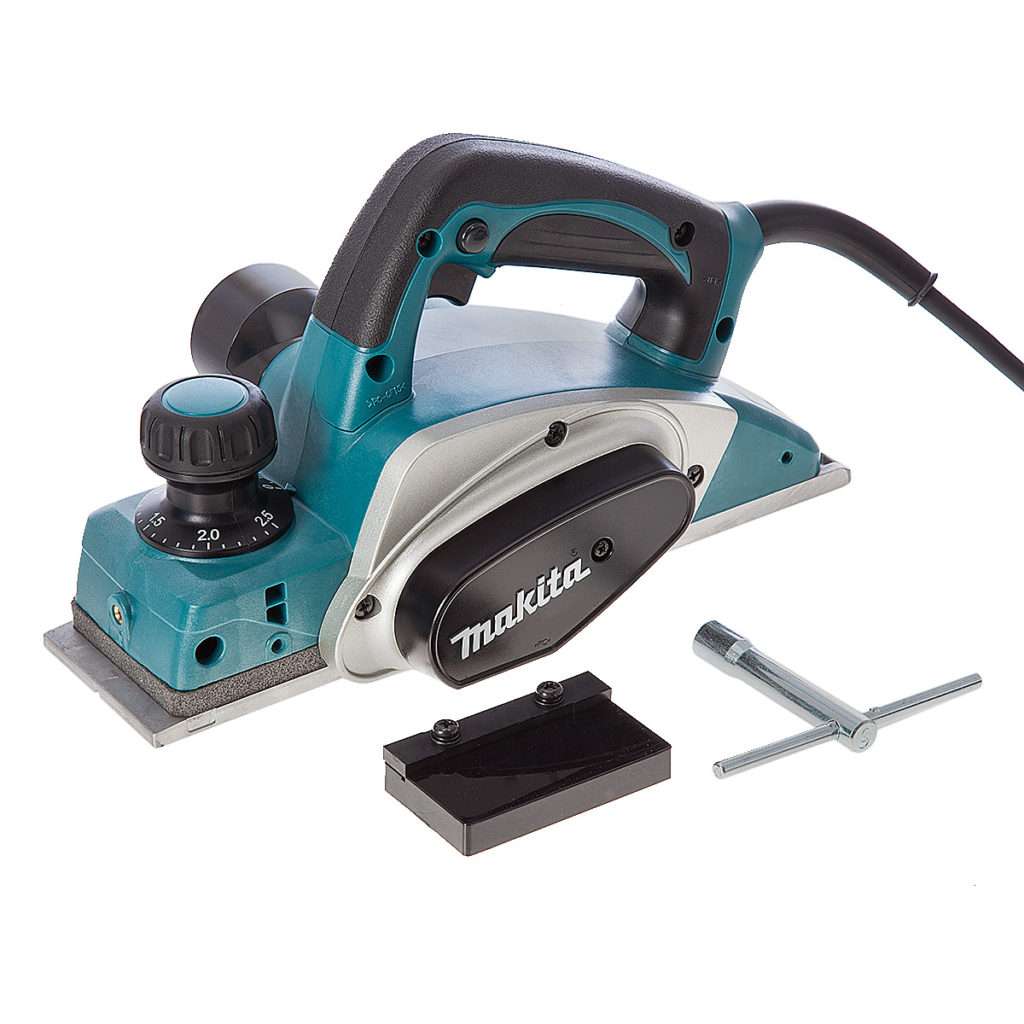
Tool #5 – Spirit Level
This is a relatively straightforward tool compared to the others we’ve discussed so far in this post, but we’d be remiss not to include it! A spirit level is designed to help its user determine whether or not a surface is completely level. It’s very simple to use – all you need to do is put it in the centre of the object you’re levelling, and pay attention to the bubble in its vial. If the bubble strays too far to the left or right, it’s a good indication that your object is not completely level. If it stays dead centre, then you’ll know it’s a job well done.
It’s useful for a huge variety of tasks and DIY jobs – one especially popular usage is for hanging pictures at home. However, it can also be instrumental in more pivotal jobs too, such as working out whether or not the top of a door is level. While a picture hanging askew can be easily corrected, it’s not always so simple other jobs, such as working out whether or not another layer needs to be planed off the top of a door – if you “eyeball it” and get it wrong, it’s not a mistake that can be reversed!

Of course, ‘the best tools’ is obviously a bit of a subjective term, so you may well have one or two of your own additions in mind for this list! If that’s the case though, you can be sure of one thing – you’ll be sure to find them in our range right here in our brand new ‘Hire Directory’. Packed with a huge array of tools for the trade and DIY sector for over 50 years – as well as operating from 16 tool hire depots across the North West and Yorkshire, including several major cities like Manchester, Liverpool and Leeds. If you have any questions, or you’d like any help or advice about tool hire, don’t hesitate to call our team on 0333 323 2100. We’re here to help!

 SPEAK TO US
SPEAK TO US

